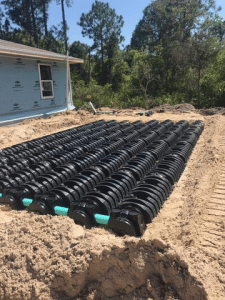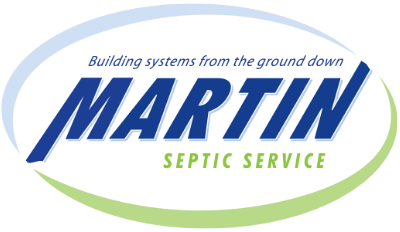Septic Tank Installation – Design Basics You Should Know
Onsite wastewater treatment definitely has its benefits. This home septic system is a cost-effective option and it is also environmentally friendly when properly installed and maintained. It can also help with water efficiency. Even though this is the case, you generally don’t have an option for wastewater treatment on your home. Either you will connect to a municipal sewer, or you will have to install your own on site septic tank and drainfield.
Do you have options? Perhaps. You certainly get to choose and hire a company you feel will do the best job. Here are a few items you might interesting while working with your septic company. If you are not familiar with all the details of a septic system, don’t worry. You can read this post about how septic systems work.
What Size Septic Tank Do You Need?
When deciding how big your tank should be, consider the square footage of your home as well as the size of your family and how much water you typically use. Conventional residential septic tanks typically range in size from 750 to 1,250 gallons, with a 1,000-gallon tank being the standard for a three-bedroom home up to 2,500 square feet.
Is a Plastic Septic Tank OK?
Yes. Septic tanks installed for residential use are generally constructed of concrete, polyethylene (plastic) or fiberglass. Concrete tanks, while common, weigh considerably more and will require the use of more heavy-duty machinery to install. Polyethylene and fiberglass tanks are lighter and typically easier to install. Your expert at Martin Septic will explain the options available to you, along with the benefits. Of course local regulations or environmental factors may also influence what is used.
How Do I Know Where To Place The Septic Tank?
Unless you are an engineer, you probably don’t know the answer. Choosing the right location for your residential septic tank installation will depend features unique to your property. They include installation regulations for your area, the layout of your property, and existing utility lines and soil quality. Martin Septic service has experts at every aspect of our projects. From design and permitting to installation and final approval. We will make your installation is proper and works for years!
How Large Should The Drainfield Be?
More than half of water treatment onsite at your property is actually done through the drainfield, not the septic tank itself.
 Like your septic tank, the size of the drain field will depend on the square footage of your home, the size of your family and how much water you typically use. However, soil quality is equally important. If the condition of the soil is good and it has a good result during the percolation test, a ballpark estimate for your drain field size is about 4,500 square feet (100 feet long x 45 feet wide).
Like your septic tank, the size of the drain field will depend on the square footage of your home, the size of your family and how much water you typically use. However, soil quality is equally important. If the condition of the soil is good and it has a good result during the percolation test, a ballpark estimate for your drain field size is about 4,500 square feet (100 feet long x 45 feet wide).
The area where your drain field will be located should also be clear of any large trees, structures or driveways. And never drive over your drainfield!
Do I Need To Do A Percolation Test?
Yes—The quality of the soil in your yard affects how well it will absorb the septic effluent (the liquid waste from the tank that is disposed of in the drain field). The drain field acts like a giant soil filter, it is important that your soil is highly absorbent. Here in Southwest Florida we are fortunate as many of the septic drainfield sites has soil that is sandy which can be very beneficial. Of course rocky, clay and soil that is already swampy will cause problems.
Leave Your Septic Tank Installation To The Experts
Martin Septic Service has been providing residential septic service to homes and businesses in the Southwest Florida Area for more than 30 years—from design, planning, installation, pumping and regular maintenance we are the local experts.
Family owned and operated, we take pride in delivering superior service and providing efficient, cost-effective solutions to meet your residential or commercial septic system needs.







